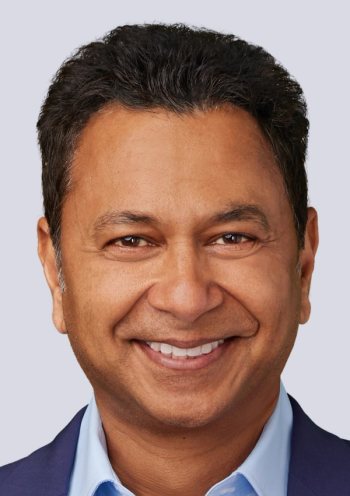
- Managed Healthcare Executive November 2018 Issue
- Volume 28
- Issue 11
New Chiefs at MCOs: 4 Positions You May Want to Add
A chief executive officer must have a more diverse team to address the rising complexity and velocity of healthcare. Here are four positions that managed care organizations may want to seriously consider.
The C-suite at healthcare organization is expanding. New roles, however, do not diminish the more traditional roles of chief financial officer, chief medical officer, chief operations officer, and chief information officer, rather, they augment them. “A chief executive officer must have a more diverse team to address the rising complexity and velocity of healthcare,” says David Gallegos, senior vice president of consulting services at Change Healthcare, a healthcare consultancy.
Here are four positions that managed care organizations may want to seriously consider:
Chief People Officer (CPO). Traditionally, the human resources function has been distanced from the C-suite and limited to handling the basics of hiring, performance reviews, and benefits. In contrast, today’s CPOs are more closely aligned with talent recruitment, development, and retention as strategies for overall business success. A CPO is data driven, possesses a strategic mindset, and is highly analytical of the organization’s future needs. “They are masterful at developing and implementing a fully integrated, strategically aligned talent plan throughout an organization,” says Mary Herrmann, MS, managing director of executive coaching at BPI group, a leadership, talent, and career transition consultancy.
The best CPOs in the healthcare space are comfortable with ambiguity as they lead employees through instability and make related decisions. “As the demand for great talent continues to grow, they are constantly conceiving of new ways to attract and engage top talent to differentiate the organization and fill future skills gaps,” Herrmann says. They also possess a strategic and highly analytical mindset as they consider their organization’s future direction, and have a strong handle on industry trends so they can stay ahead of competitors.
Chief Digital Transformation Officer (CDTO). This person is responsible for bringing together all of sectors of an organization in order to fundamentally change the way the company interacts with consumers and agents, as well automate old-school manual processes, says Bill Fox, JD, MA, chief strategist of global healthcare, life sciences, and insurance at MarkLogic, an enterprise database company. The CDTO needs to ascertain consumers’ experience when using the patient portal, using the company’s website, calling a representative, and using the company’s mobile app in order to increase acquisition and retention, he says.
These individuals also need to be able to relate that information back to the company’s technology and business investments to make sure there’s a return on their investment, which will only happen if they positively affect customers, Fox says. This requires an excellent understanding of technologies, i.e., artificial intelligence, machine learning, and bots, and includes what tools are available in marketing, mobile technologies, the patient portal, and the call center that can be used to transform the consumer experience.
A CDTO also needs excellent networking and cultural skills to bring together executives, information technology, actuaries, agents, and managers and ensure they stick to their mission, he says.
Related:
Chief Customer Experience Officer (CXO). Increased accountability for customer satisfaction has created the need for this position. A CXO is charged with making every customer's experience positive, and creates new ways to improve customer experience and increase satisfaction scores.
“Today’s customers have choices regarding which health plans they choose to enroll in,” says Diane Doherty, MS, CPHRM, senior vice president of Chubb Insurance, a property and casualty insurer based in New York. Having a dedicated executive who understands the customer experience and exactly what consumers value most is critical to ensuring that the organization designs their services in a way that is user friendly and easy for consumers to navigate. The position also highlights a health plan’s commitment to positive customer experiences.
The typical responsibilities of a CXO may include leading, coordinating, and overseeing a program to improve the customer experience and promote an organization-wide approach to customer-centeredness and engagement, Doherty says. The CXO serves as a change agent and works closely with the executive leadership team in identifying priority areas, developing goals, planning improvement, and measuring effectiveness.
Chief Quality Officer (CQO). With the federal government, state regulators, and purchasers of health insurance (including large employer groups or purchasing consortia) pushing for improved health outcomes, health plans can reap benefits by hiring a CQO. “There is renewed emphasis to directly tie quality care outcomes to plan reimbursement as evidenced by the largest payer of all, CMS, and its Five Star Medicare Advantage Plan,” says Dennis Eder, MBA, MA, cofounder and managing partner of Strategic Health Group, a healthcare consultancy.
A CQO is charged with ensuring high-quality standards are maintained and continuously improved through the introduction of new quality-focused programs and the refinement of quality measurement tools, Eder says. In achieving this goal, the CQO heads internal multidisciplinary teams that focus on quality, and he or she interacts with the plan’s chief compliance officer and regulators while working directly with provider partners to maximize the delivery of both clinical care and the overall member experience.
More chief technology roles
Emerging technologies such as artificial intelligence, data and analytics, telehealth, and robotics are changing the nature of work at all businesses. While this work has traditionally been overseen by a chief technology officer, technologies are now influencing all parts of organizations. As a result, over the past few years, more technology-driven roles are emerging at health insurance companies, such as chief of healthcare informatics officer and chief information security officer. “Executives and managers at all levels need to embrace and adapt to how technology is going to change their roles,” says Ashraf Shehata, MHA, principal at KPMG and a member of the tax, audit, and advisory firm’s Global Healthcare Center of Excellence. “These executives will make decisions regarding the pace of adaptation and how quickly an organization will invest in new technologies.”
Along these lines, disrupting trends in healthcare have created a demand for highly skilled leaders who can navigate the conversion of clinical, strategic, and informational domains to determine the best applications of technology and data science within a healthcare organization, says Steve Whitehurst, CEO, Health Fidelity, a healthcare technology startup. An organization might enlist a chief data strategist or chief innovation officer to thoughtfully approach and test the role of artificial intelligence and data science to problem-solving and interventions to ensure that all stakeholders understand how and why a technology is being used, before using it.
Karen Appold is a medical writer in Lehigh Valley, Pennsylvania.
Articles in this issue
about 7 years ago
Looser Restrictions on HRAs on the Horizonover 7 years ago
Nine Ways to Deal with Escalating Drug Costsover 7 years ago
Time to Address ‘Financial Toxicity’ of Cancer Treatmentover 7 years ago
CAR T-cell Therapy: How Payers are Responding to Huge Price Tagsover 7 years ago
Medical Foods Strive for Insurance Coverageover 7 years ago
Eight Predictions for Cancer Care in 10 Yearsover 7 years ago
Eight Top Oncology Drug Approvalsover 7 years ago
Is Precision Medicine Worth the Hype? Oncologists Weigh InNewsletter
Get the latest industry news, event updates, and more from Managed healthcare Executive.

























